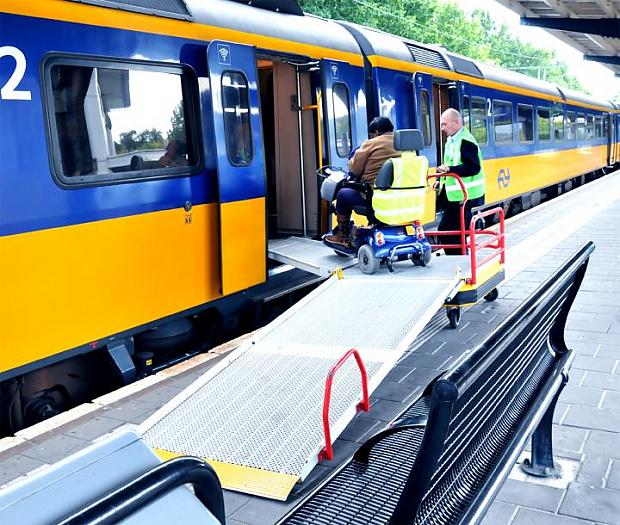Breakthrough for passengers' rights
Breakthrough for passengers' rights

The Internal Market Committee today adopted by an overwhelming majority the proposals from SP Euro-MP Dennis de Jong aimed at bringing about an enormous improvement in rail passengers' rights. Explaining the measures, De Jong said: “You can miss your connection because your first train is running late, and as things stand passengers are often left in the lurch, but if this legislative proposal is adopted, the company which sold you the tickets for the entire journey will be obliged to ensure that you reach your destination as soon as possible.”
The proposals are also important for people with limited mobility. “According to the UN Treaty which establishes the rights of people with a disability, everyone must be able to use public transport in more-or-less the same manner,” De Jong notes. “In order to make this possible, certain provisions are often needed and my proposal would mean that assistance must be immediately available. The European Commission considered it reasonable that people with a disability have to wait 48 hours before they could demand assistance. That's ridiculous of course, and puts such people at a serious disadvantage. Unfortunately an amendment from the centre-right group, the European People's Party was adopted which would mean that at stations with fewer than 10,000 passengers a day you'd have to give 24 hours' notice. For the rest, the principle is 'turn up and go´.”
Both the European consumers' organisation BEUC and the European Disability Forum (EDF) have reacted enthusiastically to De Jong's proposals. “The most important demands of both groups can be met,” he says. “Not only improvements to the provision of information to passengers, but also to the right to compensation of passengers affected by delays: 50% of the ticket price for a delay of between 45 and 90 minutes, 75% for between 90 minutes and two hours, and 100% for longer than that. Finally, there's also good news for people who want to take their bicycle along, as the number of places available for them will be greatly increased.”
The proposals will now go before the Transport Committee before negotiations on the final legislation can begin between the Parliament and the Council of Ministers, which directly represents the member states.
